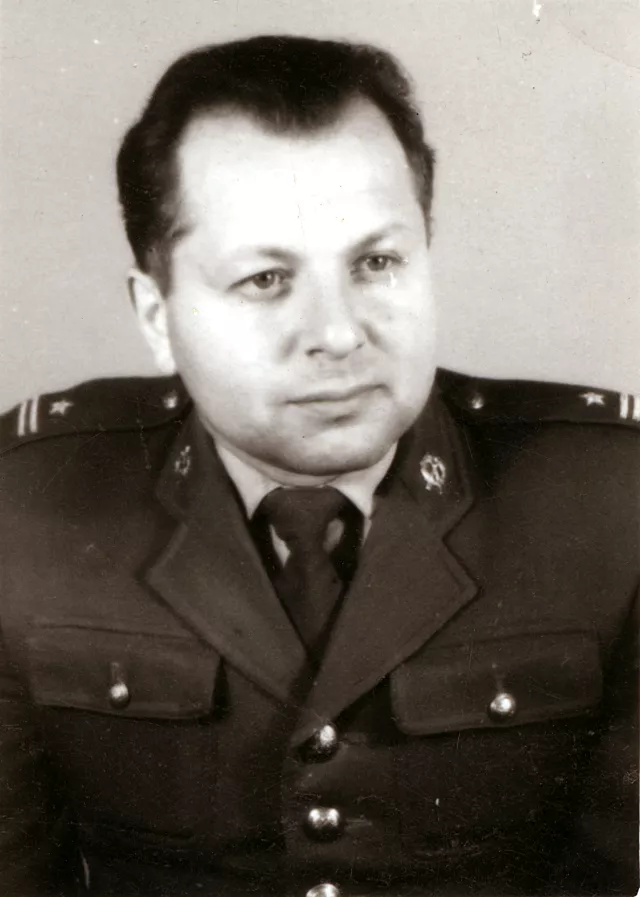This is me, Feliks Nieznanowski. It is a studio portrait, taken in Warsaw, probably in the 1960s or 1970s.
In 1967 I was told to report at the human resources department, and they ask me, 'So how's your brother in Israel doing?' 'You're asking me how he's doing? Legia, the football team, have just returned from Israel, you ask them how my brother is doing. They'll give you a detailed account, and I know nothing.' It really wasn't simple to be in touch those days.
Two years later, when the anti-Semitic campaign had started in earnest, they told me to report and said, 'Listen, we have to dismiss you.' I say, 'Now? Well, okay, dismiss me. I wanted to do it a long time ago.' The other officers were asking, why is Nieznanowski being dismissed. I was popular with the cadre. They said, 'What, you don't know? His brother is a high-ranking police officer in Tel Aviv! And you're asking why he is being dismissed?' It was only then I learned. I say, 'How is it possible? He's had rickets, he's of my height, how can he be in the army?' But it doesn't matter, it's enough they've said it. It was just sending a clear signal they wanted to get rid of me. But they had no pretext, so they had to invent.
Later they took care of me, they summon me, and ask, 'How long have you been a major?' 'Eight years.' 'Eight years? And no promotion?' 'No,' I say, 'I'm of the wrong decent, that's why I've had no promotion.' 'Well, that's a scandal! We're offering you a higher position. You can immediately go to Bartoszyce, in the Mazury area.' I say, 'To Bartoszyce? A very interesting proposition, but I can't decide myself, I have a wife, children, a home.' 'But you're the head of the family, the decision is yours to make!' I say, 'No, I can't decide without my loved ones.' 'Alright, report tomorrow at 10am what you've decided.'
I already knew how they were fixing others. 'So, have you made up your mind?' 'Yes, I have, and I have decided not to go and not to accept this proposition.' 'And why?' 'My kids are about to complete elementary school, they won't be able to continue their education there. I know what kind of town Bartoszyce is.' 'Are you refusing to obey an order?' I said, 'This is not an order. I'm simply rejecting the proposition. If you offer me something here, in Warsaw, then okay.' Several dozen people were thus gotten rid of. Everything under pretext, and at Jaruzelski's knowledge, because he was the defense minister at the time.
By 1968, when all that had hit us [the anti-Semitic campaign], I saw that spirit starting to circle around me. We were thinking more and more about leaving. My wife was very much in favor, because we saw - this one leaving, that one leaving, you went to the Dworzec Gdanski train station, bid farewell. I then said - if I am to go, then only to Israel, where I had a brother, there was family. I was full of ideology, I was thinking, there's no place in the world that's free of anti-Semitism. I knew it was in America, it was everywhere. On the other hand, there was the question of my wife going to Israel, of our children, as it wasn't clear whether they were Jews or not. It wasn't very clear at the time whether a goy woman would be welcomed in Israel, or the kids, whether my son would adopt the religion. There were many unanswered questions, though today they tell me it wasn't that bad. I don't know, perhaps I was wrong, in any case, that tilted the balance against going. Both my wife and my kids have held it against me to this day.



































